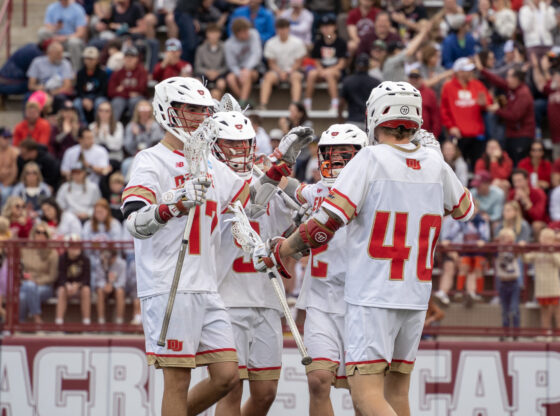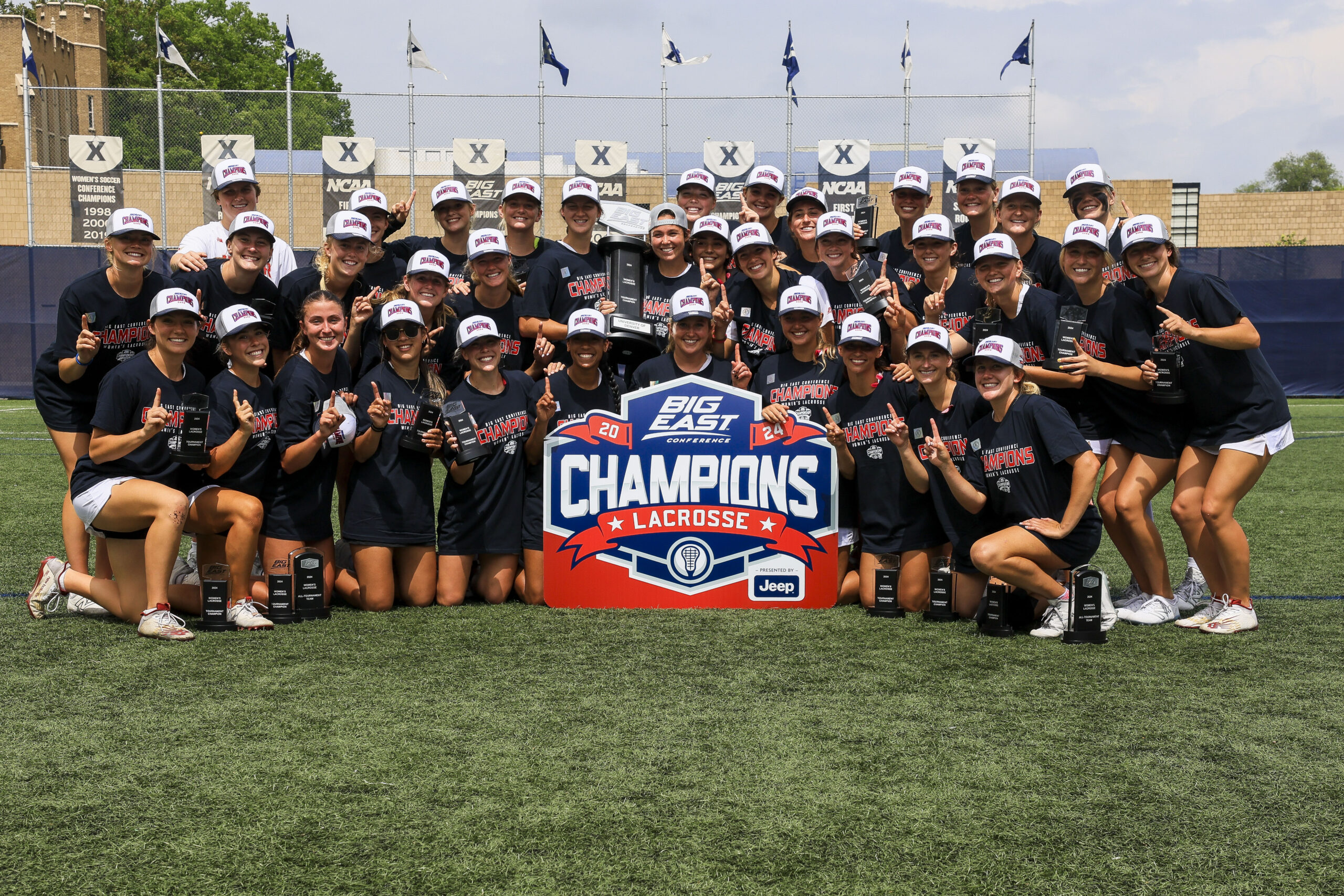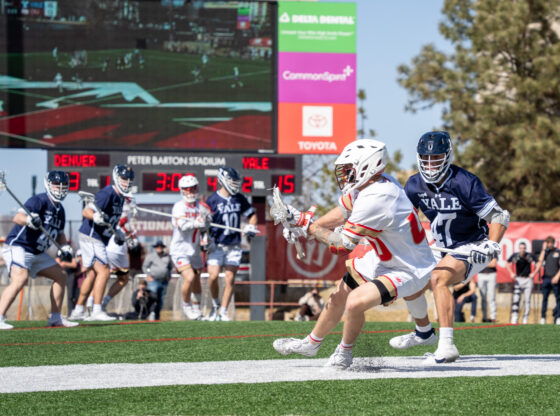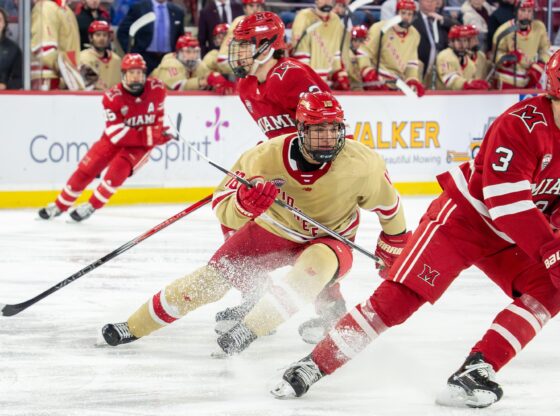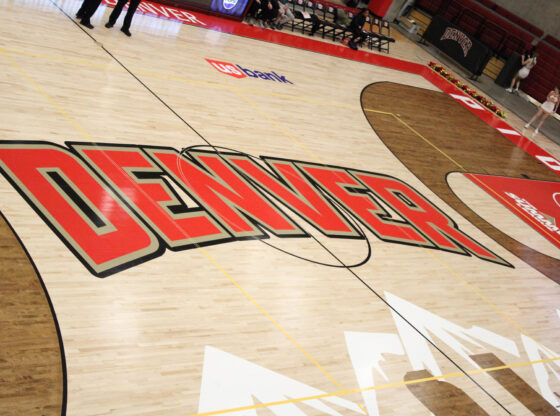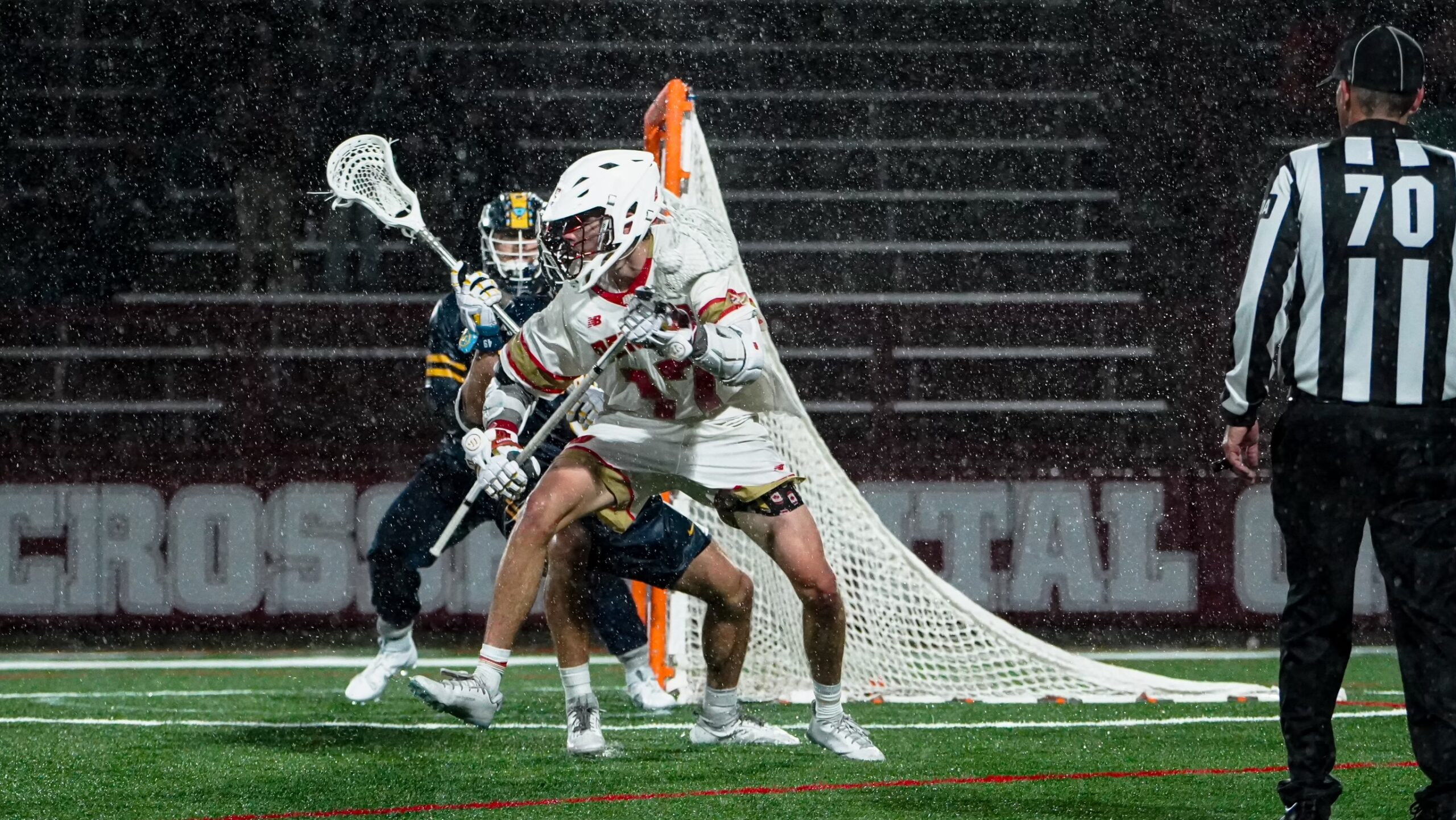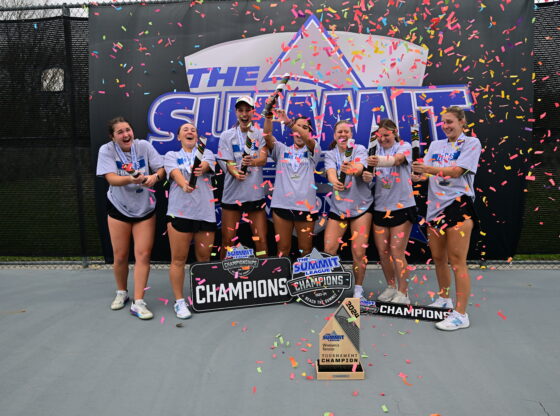Karen Scarpella is not a typical DU athlete.
Two years after suffering a stroke that almost claimed her life, the 48-year-old grandmother said she has been using figure skating as physical therapy, recovering from several physical and mental symptoms.
“[Skating] makes me stronger—physically and mentally,” said Scarpella. “It sharpens my mind and is the best possible physical therapy I could have had.”
Scarpella is a graduate student at DU, pursing a Ph.D. in social work, and is a member of the club figure skating team. Skating, she said, kept her motivated to go to school.
“It was because of that activity that I became tied to the club and the school,” said Scarpella. “I was able to rationalize that if I quit school then I would have to quit skating. I will always be grateful.”
Five weeks before her stroke, Scarpella fell while attempting a camel spin and hit her head, which she points to as the key event leading to her stroke.
On April 1, the morning of the stroke, she remembers waking up having a pain in her neck, which was followed by a tingling feeling in her face and numbness in her arm.
“I called my husband but he hadn’t gone to work yet,” said Scarpella. “If it had happened 15 minutes later I would be dead.”
The problem stemmed from a tear in Scarpella’s vertebral artery, an artery in the neck. At first she wasn’t able to walk or talk, had trouble controlling any of her bodily functions and remained in the hospital for more than a month.
After three months, Scarpella’s neurologist told her she could return to life as she once knew it.
“He told me ‘whatever happens, happens, good luck,'” said Scarpella. “I went back to skating, which I had fallen love with more than a decade ago. I had just gotten off the walker. I didn’t know what to do.”
Even more than therapy, skating has forced Scarpella to face her fears and reminder she is capable of skating, something that seemed impossible after her stroke.
Scarpella has overcome many obstacles in her life, including knee replacements in each of her legs several years ago, however Scarpella has met never allowed herself to get beat.
But the difficulties in her journey did not end there. In 2009, U.S. Figure Skating officials implemented a rule prohibiting Scarpella from competing, because of her age.
Scarpella said she was so upset that she quit skating. Then, she wrote a letter in response to the rule.
“I told them [U.S. Figure Skating] that I didn’t think it made sense,” said Scarpella. “A college student is a college student, it shouldn’t matter how old someone is, because recreational skating is for any student.”
The rule was reversed last summer, but not because of her letter. Her teammates had written to U.S. Figure Skating with a petition on Scarpella’s behalf.
“I had no idea that they were doing that, they fought for me and I had no idea,” said Scarpella. “This current group has really fought for me, because of them I am allowed to go out and do spins and jumps.”
Scarpella said that she really isn’t competing this season. Her vision is impaired, which challenges her on the ice and in the classroom, and her body still doesn’t function the way it should.
All of these conditions prevent her from seriously competing, which she had done on past teams since her arrival at DU in 2000.
Scarpella said she realized this was the most special team she had been on during her first competition since the stroke, held in Colorado Springs last November. She remembers being she cheered on by her teammates more than she could have ever expected.
“They cheered me on like I was doing triples, it was really unbelievable,” said Scarpella. “That was when we really started bonding and it just kept up from there.”
The humanity of her teammates propelled Scarpella to join them at Nationals. The most important thing she took away from the experience though wasn’t a gold medals, it was hope. A gift from all of her teammates acts of kindness.
“This team would come in on their own time during the year and help me on the ice, hold my hand and help me stand up,” said Scarpella. “At nationals they didn’t exclude me once, they invited me to line dancing and got me onto this mechanical bull. I had this tainted view of this generation that it was self-centered and self-serving and that has changed because of my teammates. I have great hope for the future now.”
Scarpella’s long journey has included special moments like sharing the ice with Michelle Kwan, when she was a student at DU, and enjoying the club skating team’s best finish in team history. The most precious medallions are not her memories, rather what she has learned through her interactions with her teammates and the sport of skating. And what they have taught her is that she is capable of overcoming all life’s shortcomings.

